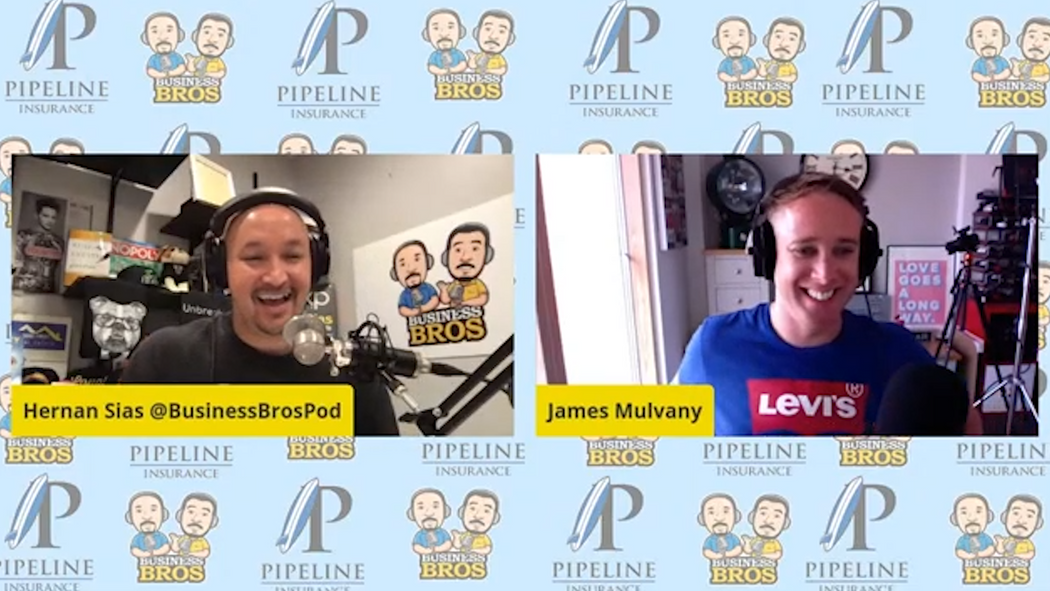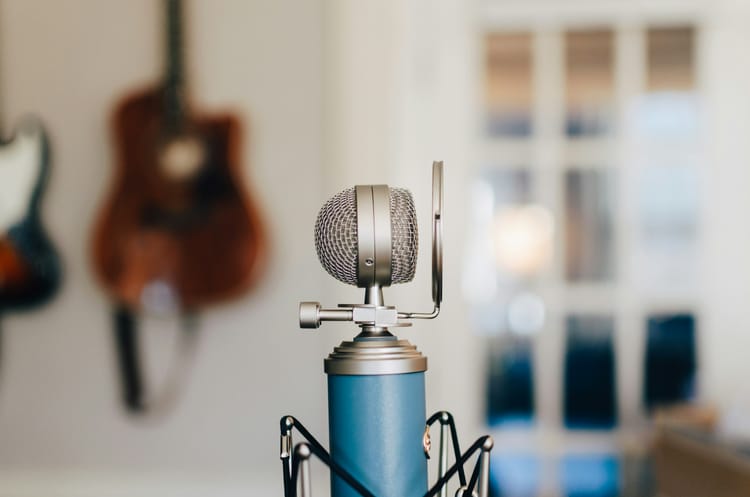If you’ve been podcasting for a while, you’ll know it takes work to set up interviews. You need to find the right guests, invite them on your show, book a time to record, provide helpful information before the interview, and try to steer clear of any dreaded technical issues.
Your podcast guest onboarding process counts for more than you might think. Guests value their time just as much as you value yours. So the more efficient and organised you can be, the better. Little details and touch-points during the pre interview phase can have a big impact when it comes to creating an enjoyable interview experience.
In this article we’ll outline a start-to-finish podcast guest onboarding process you can replicate for your own show (complete with standard email templates you can modify).

Book your next guest the easy way
With more than 70,000 members, MatchMaker.fm is the largest online community connecting podcasters & guests.
Join MatchMaker todayWhat is Guest Onboarding?
Before going any further, let’s first define what we mean by podcast guest onboarding.
Basically, your guest onboarding process is everything that happens before the recording itself. Your initial outreach, your booking system or calendar tool, any emails or material you send over to guests in advance, your pre-interview warm up before you hit record.
If you haven’t given much thought to these elements before, now’s the time to start. Following the steps below will help you create a smooth and efficient onboarding process.
Find Suitable Guests Faster With MatchMaker.fm
Often one of the most time consuming parts of the onboarding process is identifying the right guests in the first place. Ideally you want to find individuals with the right background and credentials, who also have plenty of experience recording interviews.
This is where MatchMaker.fm can make a big difference. It’s an online platform that connects podcasters with great guests. So if you’re looking to find the right experts for your show quickly, all it takes is a few clicks.
The first step is to create a profile for your podcast. Simply upload your artwork, podcast description, and tagline. For more on how to create the perfect podcast profile, check out this article.
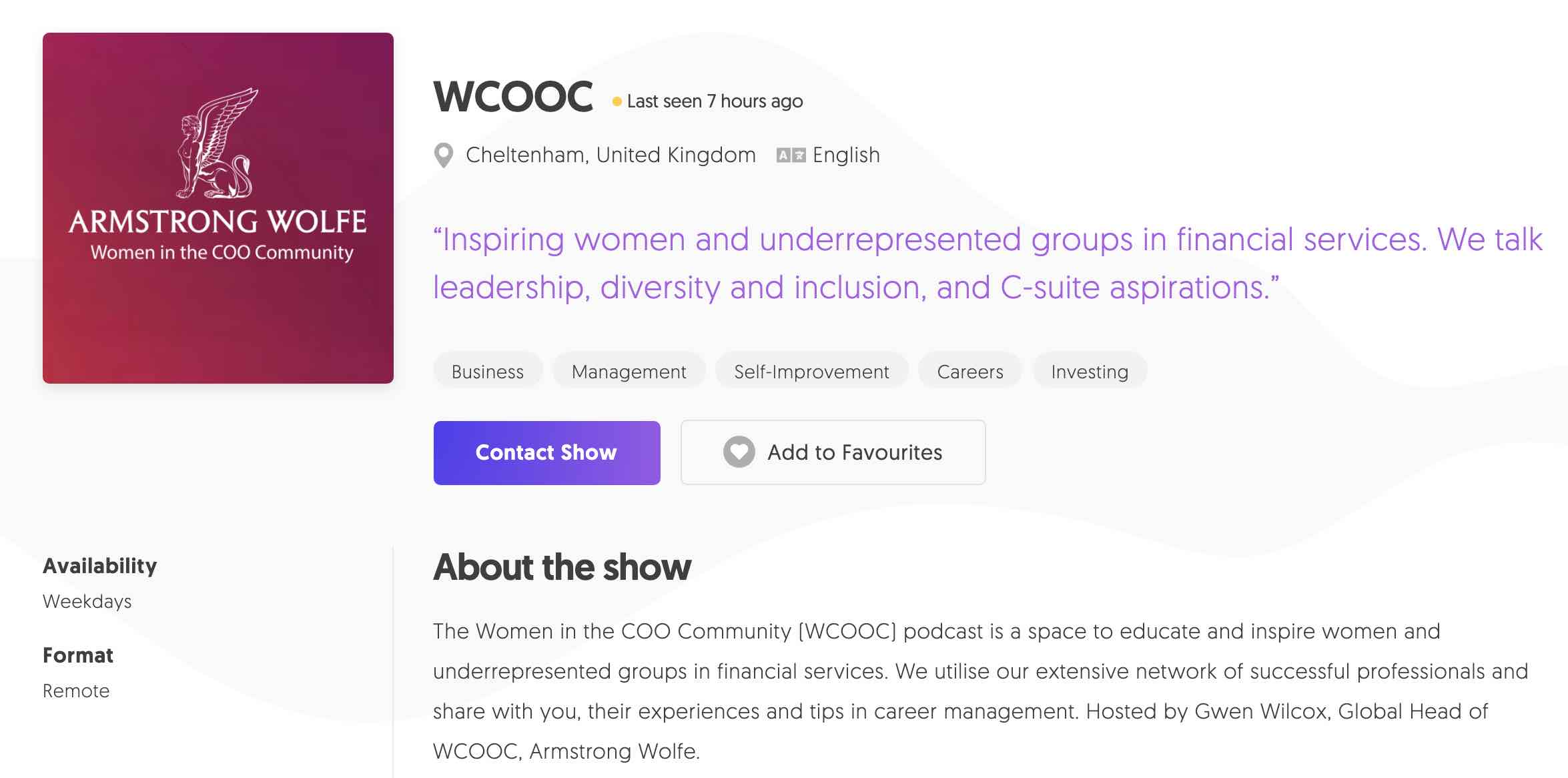
Once you’ve created your podcast profile you can then browse a database of more than 70,000 guests. The quickest way to narrow down your search is to use filters. You can filter shows by podcast category, location, language, and more.
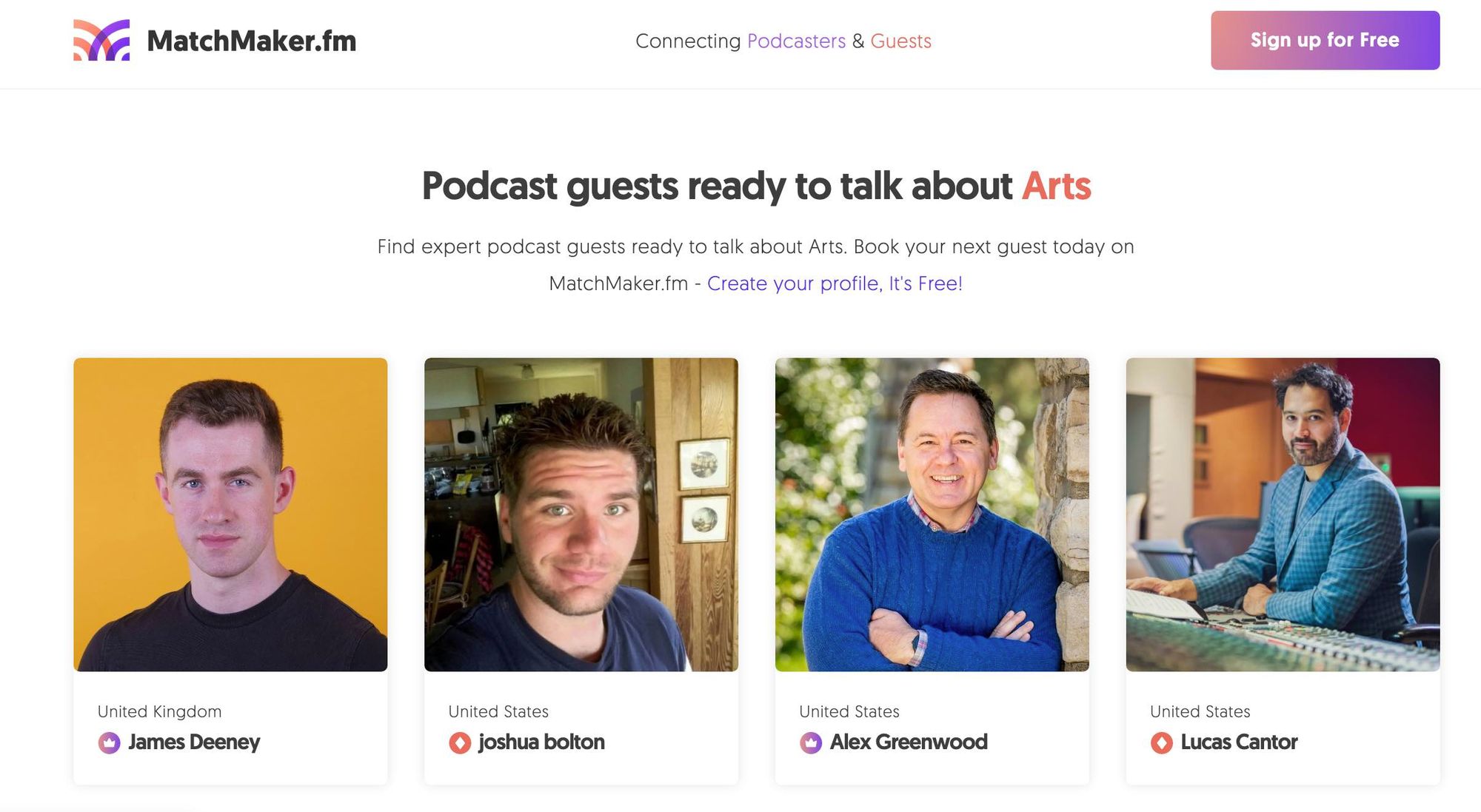
If you spot any guests that look like a good fit, you can quickly add them to your favourites by clicking the heart icon on their profile. We recommend building up a list of 10 -15 suitable guests to begin with (not everyone will say yes!). Once you’ve got your favourites list, you can then reach out to them via MatchMaker’s instant messaging service and invite them on your show.
How to Invite Guests on Your Podcast
Not all guests you pitch to will agree to be interviewed. And that’s ok - you can’t win them all. Remember, the most in-demand podcasts guests likely receive multiple interview requests every day. So your initial pitch has to be high quality to stand out.
That’s why it is really important to understand what kind of guest you are looking for, why you are looking for them, and what you want to achieve by having them on your show. This all needs to be communicated in a concise and well-written outreach message.
Try to avoid sending the same blanket pitch to all guests. Cut and paste generic templates are easy to spot and you’ll be much less likely to get a response. A little personalisation goes a long way here.
Note: For more detail on how to craft a great pitch inviting guests on your show, check out this guide.
Use a Scheduling Tool
We’re going to assume you’ve sent a carefully crafted pitch and your guest has agreed to come on your show. So what’s your next step?
If you’re not careful, this part can be a major time suck. Sometimes it can take a lot of emails back and forth just to get a time nailed down to record. That can be pretty frustrating for both you and your guest, and doesn’t create a great first impression.

If you aren’t already, start using a scheduler like Calendly or ScheduleOnce to avoid this problem. They show your availability clearly and allow your guests to pick a time slot and instantly book in their interview. No more email ping pong.
Let Guests Know What To Expect
As soon as you’re notified that a guest has booked a slot in your calendar, we recommend sending a follow-on email that will help them get ready for the interview. That way you’re less likely to forget, and it gives guests plenty of time to prepare and gather their thoughts beforehand.
Most guests like to know what you’re planning on bringing up. Nobody likes to feel as if they've been ambushed by a question that caught them off guard. So it’s best to give people a quick heads up. You don’t have to go into minute detail here. A few bullet points detailing the key topics you want to touch on is more than enough. If you have a few standard questions you ask all guests, include those as well.
Note: Occasionally a guest might want to see a full list of all questions you plan on asking. But it’s quite rare, and they’ll usually let you know if that’s the case.
It’s fine to throw in a few unscripted questions and topics into the interview. It usually helps to shake things up and make the content more engaging for listeners. But as a rule of thumb don’t bring up anything controversial with your guests without a bit of forewarning.
If your episodes are broken up into distinct segments, then you should let guests know that at this point too. Lastly, we recommend closing this follow-on email with a link to a couple of episodes you feel are a particularly good representation of your show. This’ll help guests get a feel for your format and interview style.
You can adjust the standard template below to fit your podcast:
Subject: Your interview on [PODCAST NAME]
Hi [GUEST NAME],
I’m looking forward to the interview, thanks again for accepting the invite.
Here’s an overview of the topics and questions I’d like to touch on in the conversation:
- [INSERT TOPIC / QUESTION 1]
- [INSERT TOPIC / QUESTION 2]
- [INSERT TOPIC / QUESTION 3]
- [INSERT TOPIC / QUESTION 4]
I also wanted to let you know that I record a lightning question round at the end of every interview. Here’s the list of questions I ask all my guests:
- [PROVIDE DETAILS OF ANY REGULAR QUESTIONS OR SHOW SEGMENTS]
Lastly, to get a feel for the style and tone of the show before the interview you might want to check out the episodes below:
- [LINK TO EXAMPLE EPISODE 1]
- [LINK TO EXAMPLE EPISODE 2]
I’ll be back in touch closer to the time of recording, but if you have any questions in the meantime, just let me know :)
Thanks,
[YOUR NAME]
Pre-Empting Technical Issues
If you’ve been podcasting for a while, you’re probably no stranger to technical issues. They always crop up now and again. Wifi can be unreliable, headphones can be forgotten, and pesky background noises can sometimes affect your recordings.
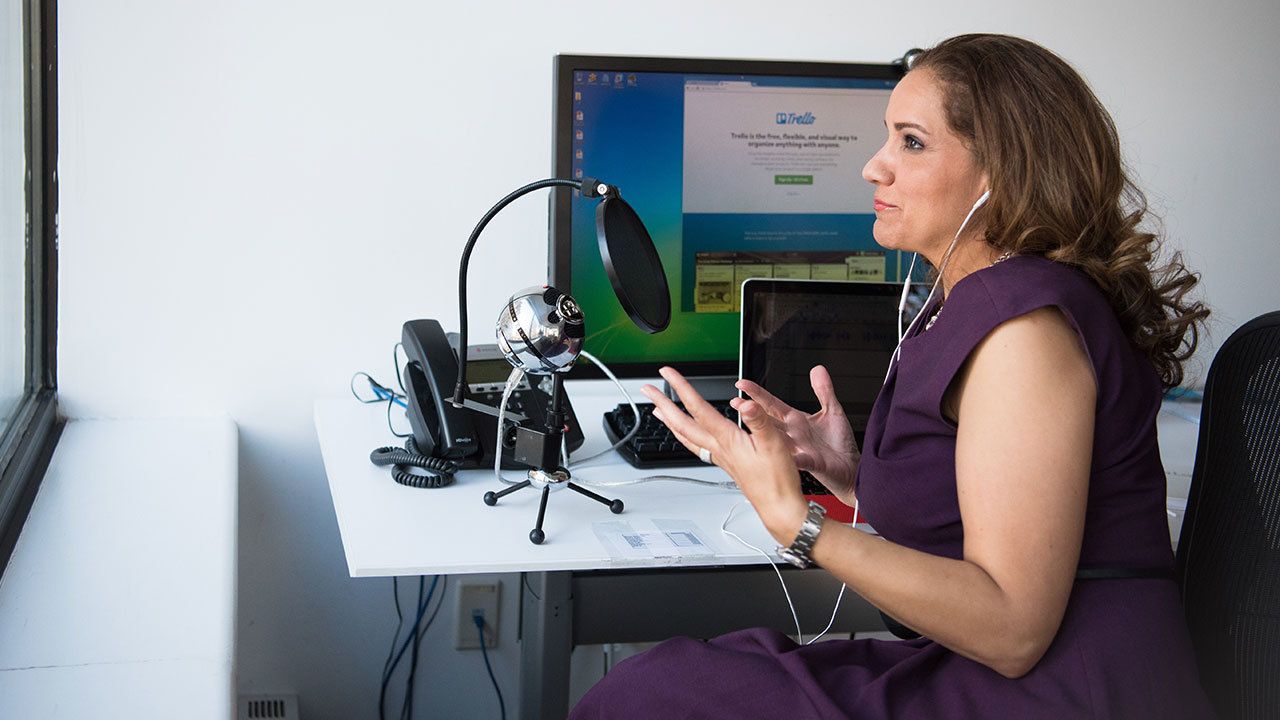
While the occasional technical hiccup is fine, you should do your best to keep them to a minimum. Not only for the sake of your recording, but also for creating a better guest experience. This is especially important if you’re interviewing guests who aren’t very tech savvy.
If a guest joins your call and you have to spend the next 15 minutes troubleshooting to work out why you can hear their audio, it doesn’t inspire confidence. Some guests may get a bit flustered and your content could suffer as a result. Others may get a bad impression of your show, making them less inclined to share your episode.
Sending an email over to your guest a day or two before the recording is scheduled to take place is a great way to minimise the risk of technical problems. It should provide simple instructions and reminders to help ensure they’re all set up and ready to go when they join the call.
At Podcast.co we regularly record with guests remotely using Riverside.fm. When we do, we send everyone the following list of reminders 48hrs before the recording takes place:
1. Find the quietest room in the house/office.
2. Make sure you’ve got a strong internet connection / signal.
3. Switch off your phone or put it on silent.
4. Make sure you connect with your USB mic plugged in if you have one.
5. You must use headphones during the recording (this prevents echo).
6. Close all other programs that may make noises during recording.
7. Refresh on Riverside if you encounter any problems.
If you have any questions or need a hand getting set up just let me know!
This usually helps recordings run much smoother. Just tweak the messaging above to make sure it's applicable to the recording software you’re using - whether it's Zoom, Skype, Squadcast, or Zencastr.
Note: We’ve found it’s always best to send this technical email close to the time of recording. Otherwise the information can get buried in your guest’s inbox and they’ll forget about it.
Even if your guest doesn’t have access to a microphone, following the other steps above will still prevent problems arising and help you capture the best possible sound from the equipment they’re working with.
Sending an email like this before your recordings makes you look professional and enhances the guest onboarding experience by providing reassurance for guests that aren’t tech savvy or don’t have much experience doing interviews.
Pre-Interview Warm Up
We always recommend giving yourself a bit of a buffer by factoring in time for a 10 minute warm-up conversation before each interview. This gives you space to iron out any last-minute technical issues and it also allows you to build some rapport with your guest before you dive into the recording.
Making guests feel at-ease before the recording starts means you’re more likely to get better content from them. Remember, for those who haven’t recorded many interviews before, it can be quite a nerve-wracking experience. So a bit of back and forth conversation before the mics go live can make a big difference.

It’s a good idea to give all guests a brief elevator pitch for your show and remind them of who your target audience is in this warm-up phase. Having that info fresh in their heads will help them tailor their answers more precisely to your audience.
Lastly, give each guest the opportunity to ask you any questions they might have before you start recording. If you’re dealing with experienced guests, this process usually takes less than 5 minutes. But be prepared to take a bit longer for those guests that need it.
Tip: If something interesting comes up during your pre-interview chat, you can always reference it again during the interview. But remember to keep listeners in the loop by saying “Before the mics were on, we were talking about X...”
Post-Interview Wrap Up
Once the interview has finished, take a few minutes to let your guests know what happens next. Where will the episode be published? How will it be promoted? When will it be live? If there is likely to be a significant delay before their episode is released, let them know. This gives them an opportunity to build your episode into their own marketing timeline.
Be mindful of time here - don’t keep your guests on the line for longer than necessary. It should only take a couple of minutes to let them know these key bits of information.
Following Up & Encouraging Guests to Share
As soon as the episode goes live, you should follow up with your guest to let them know. Ideally some of them will help promote your podcast by sharing the conversation with their followers on social media.
But simply sending a link to the episode on your website isn’t very share-worthy. You need to make it both easy and appealing for guests to share the episode when it’s released. This basically comes down to writing great show notes, and creating visually-engaging promotional material for each episode. Check out this guide for more on how to get guests to promote your podcast.
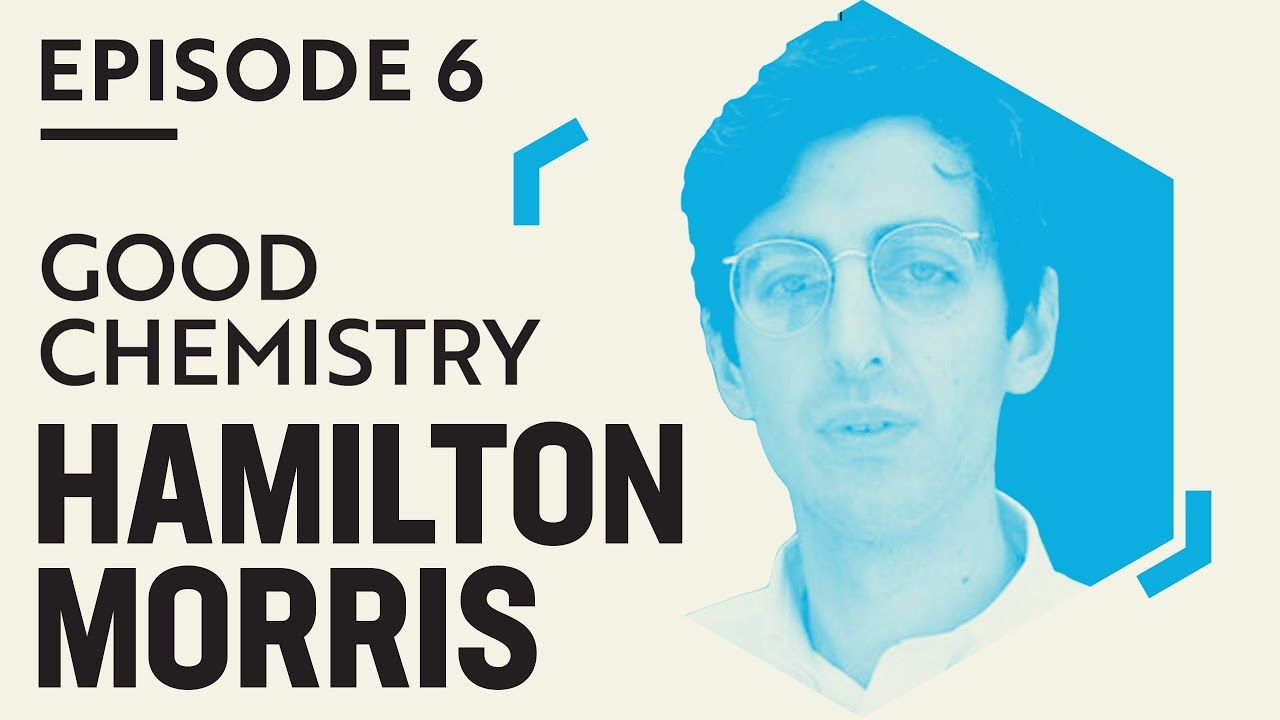
Conclusion
You’ve now got everything you need to create a seamless and efficient podcast guest onboarding process. Here’s a quick reminder of the key parts of the process:
- Use MatchMaker.fm to find suitable guests faster
- Use a scheduling tool to streamline the booking process
- Email each guest letting them know what to expect
- Send an email to pre-empt technical issues 48hrs before recording
- Allow 10 minutes for an informal pre-interview warm up conversation
- Let guests know the next steps once the interview is over
- Send a follow up email when the episode is live encouraging guests to share

Book your next guest the easy way
With more than 70,000 members, MatchMaker.fm is the largest online community connecting podcasters & guests.
Join MatchMaker today
